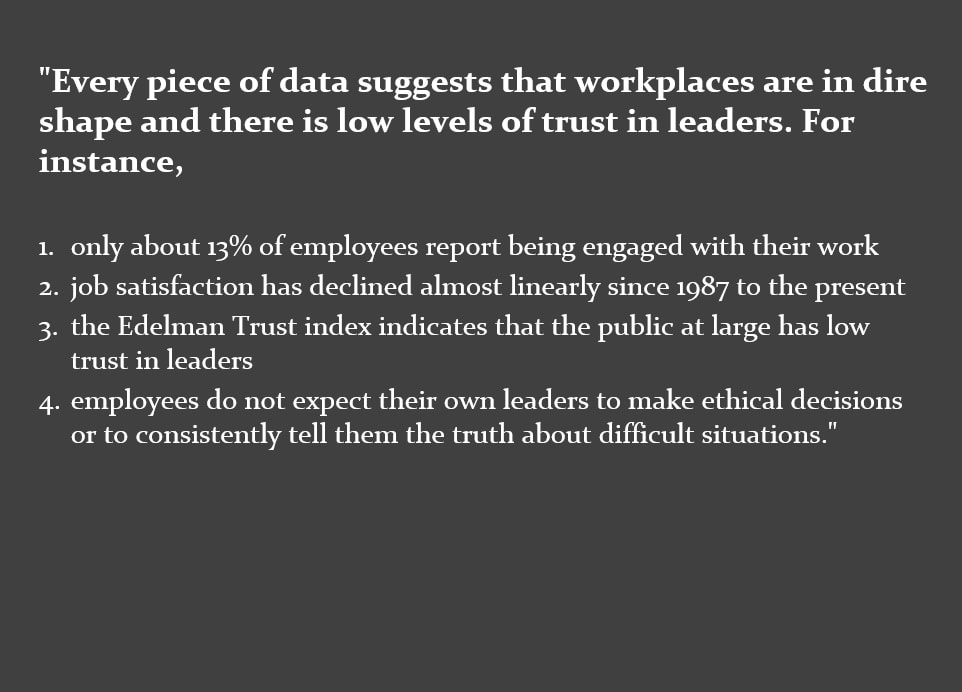
August 7, 2020
In a September 2015 Forbes article, a Stanford University professor of management cites survey data indicating challenges with employee engagement:

The professor suggests that one potential factor for this lack of engagement is “almost inevitable outgrowth of the increasingly “transactional” nature of work…as there are an ever-higher proportion of contractors and part-timers doing organizational work.”
And, even “full-time employees face increasingly levels of economic insecurity including layoffs and, in the case of many retail employees, always-varying schedules that make predicting time demands and income almost impossible.”
Furthermore, the researcher concludes that “seeing people as costs to be minimized, and the increasingly transactional nature of companies, means that the social relations that once bound people together and to their companies have largely disappeared.”
5 Years Later the Data Are Worse
The contractual nature of work has only accelerated since the above observations were presented, with Uber and the rapid acceleration of the gig economy. Moreover, due to the effects of COVID-19 in early 2020, layoffs and retail disruption have surpassed those of the Great Depression nearly 100 years ago.
Strategic Implication
Viewing the workforce as an investment to be maximized is in stark contrast to the mindsets of many contemporary leaders. This perspective will not only help to improve employee engagement but also organizational results.